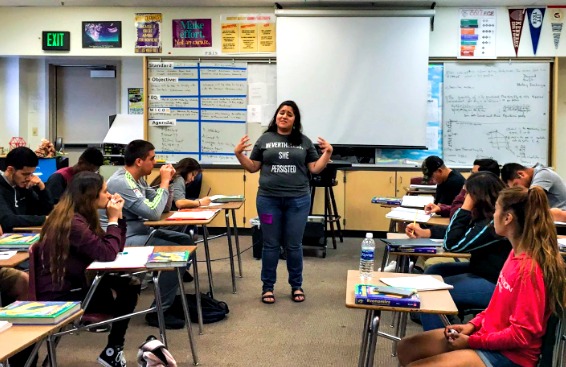I think most voters expect other voters to be informed before they vote, I do not think that this is too much to ask for since people’s livelihoods are at stake. At the root of voting, I see a clear need for education.
The voting process can be complex. As we saw this June 5, 2018 primary election throughout California, there were various complications throughout County Registrar of Voter Offices. For example, the The Sacramento Bee reported this about Los Angeles County, “A printing error left more than 118,000 names off the lists at 1,530 precincts, according to the county Registrar-Recorder/County Clerk’s Office. Californians statewide are voting in primary elections Tuesday.”
Having previously worked as a ballot clerk at polling locations and as a poll monitor on election days, I have learned that there are possible mistakes that happen locally each election. It is clear that voters do not know their voter bill of rights, which may often lead to people not voting. For example, there are individuals who showed up to vote, but they may have decided not to vote due to the lines created by provisional ballots as a result of mistakes like an error printing for precincts.
I believe that the K-12 education system is responsible for teaching kids the foundation of their entire lives since school is where they spend most of their time. So I question why the voting process is not a lesson taught and utilized to make decisions throughout their education?
If we are ever going to see the changes we want in our society and communities, voting and civic duty need to be embedded within students’ education. We have to make sure that voters are informed first about the different levels of government and then the jurisdiction of governance that lay within each level. This is what government classes are focused on, but it isn’t enough.
The next step should be to understand the bureaucracy and policy behind voting (i.e. voter registration, the voter bill of rights, and the results process). After those two steps, voters should learn about the politics of voting. This can be done in their community through volunteering with local government offices, businesses, nonprofits and etc. Without this foundation, voters won’t make informed voting decisions, and voters become apathetic because they believe their vote will not make a difference.
It is important to acknowledge that civic engagement and voting need to be a developed as a habit while people are young, even before they have the chance to formally vote in elections sanctioned by the government. We need to be better at preparing people in our society to be voters, especially if we want them to be informed lifelong voters.

